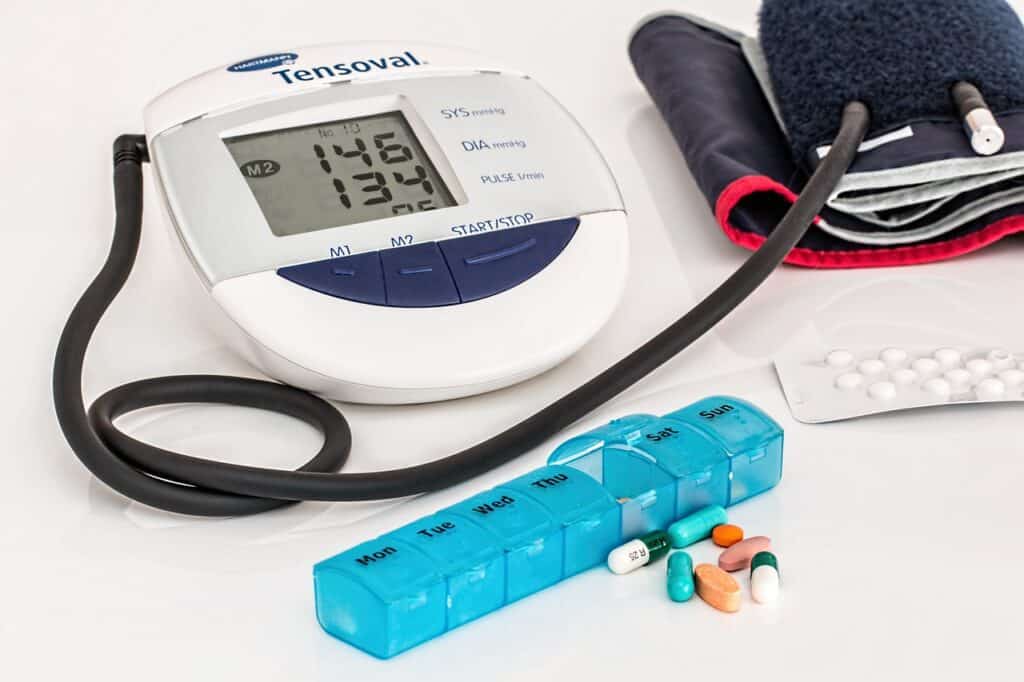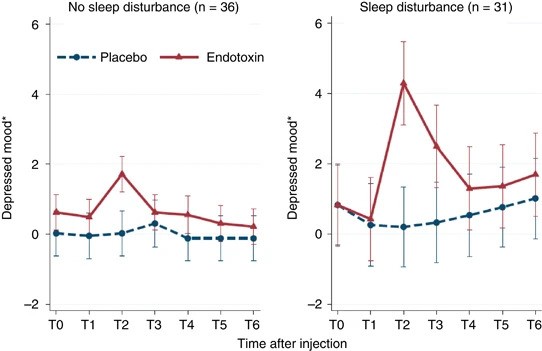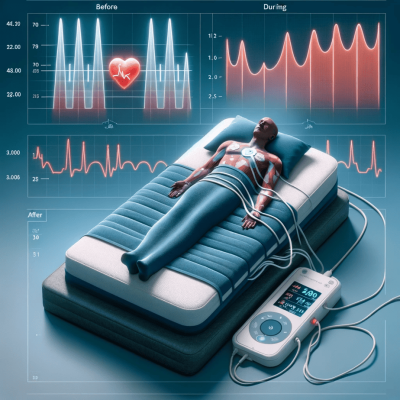Sleep is the bedrock for cognitive function, underpinning learning, memory, and problem-solving processes. Deprivation, even in small amounts, disrupts these intricate functions, leading to subtle yet significant changes. In this article, we will talk about 12 lesser-known effects of sleep deprivation, highlighting its extensive impact on our overall well-being.
Sleep deprivation significantly impacts cognitive functions, particularly attention, working memory, and executive function. Research indicates total and partial sleep deprivation impair decision-making and problem-solving abilities (1). Additionally, sleep deprivation affects declarative memory, increasing susceptibility to false memories (2).
Lack of sleep severely impairs attention, making it difficult to concentrate on tasks. This diminished focus can lead to errors and accidents. Working memory, essential for holding and manipulating information over short periods, also suffers, impacting everyday tasks and learning.
Sleep deprivation affects the brain’s prefrontal cortex, crucial for executive functions. This impairment results in poor decision-making and problem-solving abilities, leading to suboptimal outcomes in personal and professional settings.
- Increased Risk of Heart Disease

Chronic sleep deprivation is closely linked to an increased risk of cardiovascular diseases, including hypertension, heart attack, and stroke. This connection is primarily due to elevated stress hormones and inflammation resulting from insufficient sleep (3). Lack of sleep leads to increased production of stress hormones like cortisol, which raise blood pressure. Over time, this chronic elevation can lead to hypertension and increase the risk of heart attacks.
Studies have also shown a correlation between short sleep duration and higher incidences of coronary artery calcification, a predictor of future heart disease (4). This calcification increases the risk of stroke and other severe cardiovascular conditions.
- Weakened Immune System
Sleep is essential for maintaining a robust immune system. During rest, the body produces and releases cytokines, protective proteins that are essential for immune response. These cytokines help the body combat infections, illnesses, and stress. Moreover, white blood cells, vital in defending against pathogens, depend on adequate sleep to maintain optimal function.
Lack of sleep impairs immune function by reducing the production of cytokines, which are crucial for combating infections and inflammation (3). Sleep-deprived individuals are more susceptible to infections and experience slower recovery times. Research indicates that even partial sleep deprivation can reduce the immune response to vaccines, highlighting the critical role of sleep in maintaining immune health (5).
Enhancing sleep quality can fortify immune defense. Adults should target seven to nine hours of sleep per night, maintain a consistent sleep schedule, keep electronic devices out of the bedroom, and create a restful environment. Limiting caffeine and alcohol before bedtime can also improve sleep quality.
- Weight Gain
Individuals facing reduced sleep durations may experience a chain reaction that disrupts their metabolic processes. When the body lacks adequate rest, the metabolic rate can be adversely impacted, leading to potential health issues over time. The understanding of metabolism encompasses all chemical reactions within the body that sustain life, and healthy sleep patterns are a foundational element in maintaining balance.
Sleep deprivation disrupts the balance of ghrelin and leptin, hormones that regulate hunger and satiety, leading to increased appetite and potential weight gain (6). Ghrelin, also known as the hunger hormone, stimulates appetite, while leptin signals satiety. Lack of sleep increases ghrelin levels and decreases leptin levels, causing heightened hunger and overeating.
Additionally, sleep deprivation affects glucose metabolism and insulin sensitivity, contributing to weight gain and obesity (7). Moreover, fat oxidation decreases while the storage of lipids increases, further fuelling weight gain tendencies. Consequently, the risk of developing metabolic syndrome multiplies, potentially leading to a cascade of health issues.
- Increased Risk of Diabetes
Chronic sleep deprivation is associated with impaired glucose tolerance and reduced insulin sensitivity, increasing the risk of type 2 diabetes (7). Research shows that individuals with short sleep duration are at a higher risk of developing diabetes, independent of other factors like diet and physical activity (8). Impaired glucose tolerance and reduced insulin sensitivity are direct consequences of insufficient sleep.
- Mood Disorders

Source: https://www.nature.com/articles/npp2016148
Sleep operates as a cornerstone for emotional stability and mental well-being. During the nocturnal hours, the brain processes emotions and experiences from the day, a vitally restorative operation. Steady sleep cycles facilitate the maintenance of mood equilibrium and bolster resilience against mental stress.
Insufficient sleep is a significant risk factor for mood disorders such as depression and anxiety. Sleep deprivation affects neurotransmitter systems and stress hormones, contributing to mood dysregulation (9). Chronic sleep loss can exacerbate existing mental health conditions, making management and recovery more difficult (10). The disruption of neurotransmitter systems and increased levels of stress hormones like cortisol are key factors in this relationship.
Research unearths a profound link between sleep and emotional regulation. A study by the University of California, Berkeley, published in the “Journal of Neuroscience,” delineates that sleep deprivation amplifies neural reactions to negative emotional stimuli in the amygdala, the brain’s fear center. Consequently, a lack of sleep could precipitate mood disturbances, heighten sensitivity to stress, and reduce the motivational impetus for positive engagement with others.
Each sleepless night widens the chasm between emotional equilibrium and susceptibility to mood swings. Engaging with the delicate balance of sleep is no whimsical matter but a foundation for navigating life’s emotional waters with grace and steadiness.
- Impaired Motor Skills
A glaring consequence of insufficient sleep is that it negatively impacts motor skills, coordination, and reaction time, increasing the risk of accidents and injuries (11). These effects heighten the risk of accidents and injuries, becoming a formidable public safety concern.
Studies using coordinating tasks such as finger tapping and mirror tracing demonstrate significant declines in performance under sleep-deprived conditions (12). These impairments can be particularly dangerous in activities requiring precise motor skills and quick reactions, such as driving.
A plethora of clinical studies unmask the reality that sleep-deprived individuals exhibit performance deficits similar to those under the influence of alcohol. Data from the National Highway Traffic Safety Administration reveal that drowsy driving is responsible for more than 100,000 crashes annually, leading to numerous preventable casualties and injuries.
- Skin Aging
While the moon waxes and wanes, the body embarks on a nocturnal journey of recovery and rejuvenation, often unnoticed yet silently pivotal for skin health. Sleep serves as a foundation for maintaining the skin’s lustrous vitality. During the tranquil hours of rest, the body initiates a cascade of biological repairs, with the skin reaping significant benefits.
Chronic sleep deprivation accelerates skin aging, leading to wrinkles, reduced skin elasticity, and a dull complexion. This is partly due to increased cortisol levels, which break down collagen and minimize skin barrier function (13). Increased cortisol levels associated with lack of sleep lead to collagen breakdown, a protein essential for maintaining skin elasticity and firmness.
Poor sleep quality is also linked to slower recovery from skin damage and increased severity of skin conditions like eczema (13). To foster skin health, prioritizing sleep emerges as a fundamental strategy. A starting point involves establishing a consistent bedtime routine.
Engulf the senses with tranquility: dim the lights, lower the noise, and embrace the comfort of excellent, breathable fabrics. Avoiding stimulants such as caffeine and screen time before bed can also be beneficial. Strive for the recommended 7-9 hours of profound slumber, letting your skin indulge in the regenerative magic of a whole night’s rejuvenation.
- Increased Pain Sensitivity
Sleep serves as a regulator of the body’s inflammatory processes. Adequate rest can maintain these processes in equilibrium, whereas sleep deprivation triggers a disturbance. Experimental studies confirm that even one night of sleep deprivation can significantly increase pain sensitivity (14). Levels of pro-inflammatory cytokines surge when sleep is short or of poor quality, leading to heightened inflammatory responses.
The heightened sensitivity is due to altered pain perception and increased inflammatory responses (15). C-reactive protein (CRP), a pivotal marker for inflammation and a potential predictor of cardiovascular and other chronic diseases, tends to be higher in those with insufficient sleep.
As this condition persists, the health implications can become quite profound. Persistent inflammation is associated with a panoply of health risks. These may range from heart disease to diabetes and can increasingly catalyze a spectrum of autoimmune disorders. The consequences extend beyond temporary discomfort, potentially instigating long-term detrimental health outcomes.
- Impaired Memory Consolidation

Sleep facilitates memory retention and learning efficiency. During slumber, the brain processes and consolidates new information, embedding it into long-term memory, which is critical for learning. This cycle is disrupted when sleep is inadequate.
Sleep deprivation impairs the encoding of new information and consolidation of declarative and procedural memories (16). Research shows that both REM and non-REM sleep stages are vital for different types of memory processing, and their disruption leads to significant memory deficits (17). Non-REM sleep is important for declarative memory consolidation, while REM sleep is crucial for procedural memory.
Tips to Improving Sleep for Enhanced Learning Outcomes
- Establish a consistent sleep schedule, aiming for the recommended 7-9 hours per night for adults and more for children and adolescents.
- Create a pre-sleep routine to wind down, signaling to your body that it’s time to rest. This may include reading, meditating, or a gentle yoga flow.
- Ensure the sleeping environment is conducive to rest: a cool, dark, and quiet room can aid in better sleep quality.
- Leverage technology by utilizing apps that promote relaxation through peaceful sounds or guided meditation designed to encourage sleep.
- Avoid stimulants such as caffeine and electronic screens at least an hour before going to bed to prevent sleep disturbances.
Adopting these strategies can fortify the brain’s ability to process, store, and recall information, thereby optimizing learning potential and memory function.
- Effects on Women's Fertility
Research indicates that women who sleep less than seven hours per night have a decreased likelihood of conceiving. A study found that women with shorter sleep durations were 15% less likely to conceive than those with longer sleep durations. The link between sleep deprivation and reduced fertility in women is mainly due to the disruption of hormonal balances that are critical for ovulation and reproductive health. Hormones like estrogen and progesterone, essential for fertility, are negatively affected by insufficient sleep (18)(19).
- Effects on Men's Fertility
In men, sleep deprivation has been associated with poor sperm quality, reduced sperm motility, and lower sperm counts. Studies have shown that men with sleep disturbances or short sleep durations tend to have lower levels of testosterone, a hormone essential for sperm production and overall reproductive health (18). Testosterone, which plays a crucial role in sperm production and overall male reproductive health, is significantly impacted by sleep deprivation. Reduced testosterone levels lead to poorer sperm quality and lower sperm counts, affecting fertility (19).
Act on Sleep Deprivation Now
The effects of sleep deprivation extend beyond tiredness and a lack of focus. As revealed, a persistent lack of sleep can alter physical appearance, metabolic function, sexual health, emotional well-being, and cognitive abilities.
Recognizing the depth of sleep’s influence guides individuals to adopt behaviors that align with their body’s needs. Embrace the full spectrum of a healthy lifestyle by incorporating adequate and restful sleep. Give the body its best chance at recovery, growth, and resilience.
Take direct steps towards healthier sleep practices today. Reflect on personal sleep patterns, consult with healthcare professionals, and utilize resources available for improving sleep hygiene. Commit to restoring balance in sleep to unlock the full potential of health and vitality.
References:
- Insomnia and daytime cognitive performance – Fulda & Schulz, 2003; Fortier-Brochu et al., 2012. DOI: 10.1016/j.smrv.2011.03.008
- The Limited Capacity of Sleep-Dependent Memory Consolidation – Diekelmann et al., 2008; Fenn et al., 2009. doi: 10.3389/fpsyg.2016.01368
- Sleep Health: Reciprocal Regulation of Sleep and Innate Immunity – Irwin & Opp, 2017. doi: 10.1038/npp.2016.148
- Short sleep duration and incident coronary artery calcification – King et al., 2008. doi: 10.1001/jama.2008.867
- Behaviorally Assessed Sleep and Susceptibility to the Common Cold – Prather et al., 2015. doi: 10.5665/sleep.4968.
- Short sleep duration is associated with reduced leptin, elevated ghrelin, and increased body mass index – Taheri et al., 2004. doi: 10.1371/journal.pmed.0010062
- Sleep loss: a novel risk factor for insulin resistance and Type 2 diabetes – Spiegel et al., 2005 – doi: 10.1152/japplphysiol.00660.2005.
- Sleep restriction for 1 week reduces insulin sensitivity in healthy men – Buxton et al., 2010. doi: 10.2337/db09-0699.
- Insomnia as a predictor of depression: a meta-analytic evaluation of longitudinal epidemiological studies – Baglioni et al., 2011. doi: 10.1016/j.jad.2011.01.011
- The Role of Sleep in Emotional Brain Function – Harvey, 2011. doi: 10.1146/annurev-clinpsy-032813-153716
- Practice with sleep makes perfect: sleep-dependent motor skill learning – Walker et al., 2002. doi: 10.1016/s0896-6273(02)00746-8.
- The Common Effects of Sleep Deprivation on Human Long-Term Memory and Cognitive Control Processes – Korman et al., 2003; Debas et al., 2010. doi: 10.3389/fnins.2022.883848
- Does poor sleep quality affect skin ageing? – Oyetakin-White et al., 2015. doi: 10.1111/ced.12455
- The association of sleep and pain: An update and a path forward – Finan et al., 2013. doi: 10.1016/j.jpain.2013.08.007
- Elevated inflammatory markers in response to prolonged sleep restriction are associated with increased pain experience in healthy volunteers – Haack et al., 2007. doi: 10.1093/sleep/30.9.1145
- The memory function of sleep – Diekelmann & Born, 2010. doi: 10.1038/nrn2762
- About sleep’s role in memory – Rasch & Born, 2013 – doi: 10.1152/physrev.00032.2012
- Impact of sleep patterns upon female neuroendocrinology and reproductive outcomes: a comprehensive review – Gabriela Beroukhim, Ecem Esencan & David B. Seifer. https://doi.org/10.1186/s12958-022-00889-3
- Male Fertility Is Reduced by Chronic Intermittent Hypoxia Mimicking Sleep Apnea in Mice – Marta Torres, MSc, Ricardo Laguna-Barraza, MD, Mireia Dalmases, MD, Alexandra Calle, BSc, Eva Pericuesta, PhD, Josep M. Montserrat, MD, PhD, Daniel Navajas, PhD, Alfonso Gutierrez-Adan, PhD, Ramon Farré, PhD. doi.org/10.5665/sleep.4166









